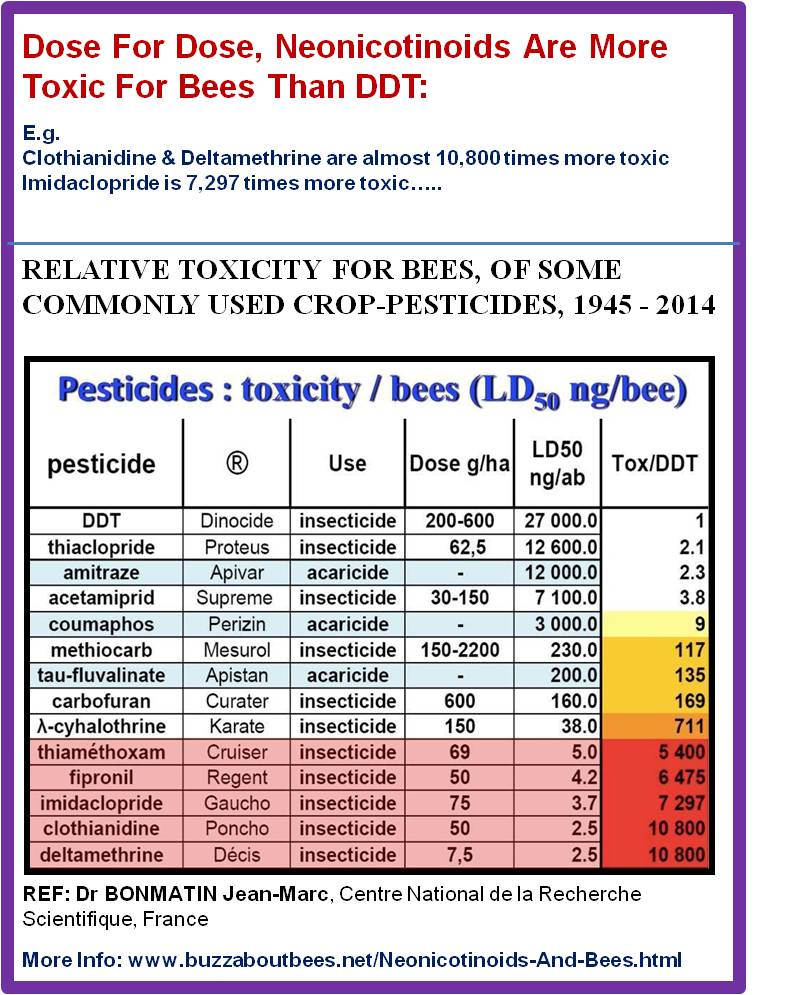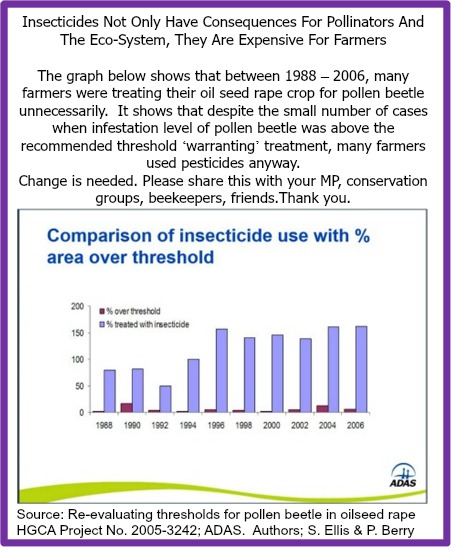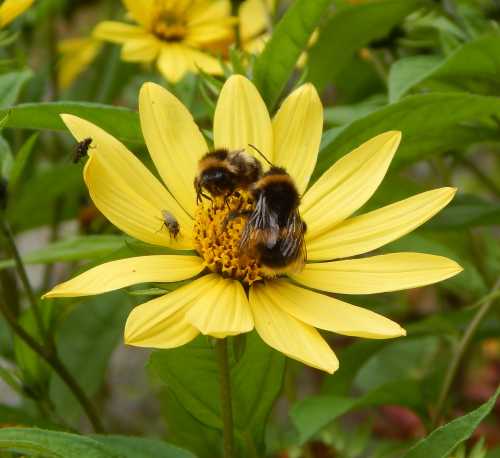Bees, Pollen Beetle Thresholds, And Insecticides
I would like to see a complete overhaul of the system for approving and using insecticides. I believe this is one of the issues we need to address in order to help bees and other pollinators.
I also believe that if farmers had access to unbiased information and education, the use of insecticides would be significantly reduced.
Crops can tolerate and recover from a certain level of 'pest' infestation. Insecticides are expensive, and in some cases, crops can be monitored to identify threshold levels, so that in theory, insecticide should only be applied once that threshold has been exceeded.
There is also research - by the US EPA no less, that really calls in to question whether the use of neonicotinoid insecticides actually results in higher levels of crop production. If not, it begs the following questions:
"Why are farmers wasting their money?"
"Why doesn't the regulatory system protect farmers?".
Meanwhile, in the case of neonicotinoids, they are more toxic for bees than DDT.
But anyway, research suggests that many farmers are applying insecticide anyway. I'm concerned that part of the reason for this, is because they receive so much information from those with a vested interest in selling insecticide.
I'd like to ask you to please share the following image as widely as you can, in order to help raise awareness of this point.
Please post onto Facebook, Twitter, Pinterest and any other social
media outlets you are engaged with. Email it to your contacts.
By raising awareness of this issue, we may gradually encourage farmers to think abuot the amount of insecticide they are using, the cost to them, and their sources of information. Eventually, we may see positive change.
Thanks.
How Can Councils Help The Bees?
Ideas To Share


